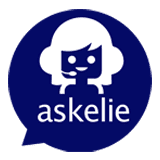For many years, compliance has been seen as a burden and a necessary cost of doing business. Yet the arrival of Artificial Intelligence and a new wave of regulation is rewriting that view. AI compliance is no longer simply about avoiding risk. It is becoming a genuine source of competitive advantage.
At AskElie we believe that the most successful organisations in the coming years will be those that treat AI compliance not as a side task but as a foundation for innovation.
When companies build AI that is transparent, accountable and explainable, they do not just meet regulatory obligations. They build trust. They gain confidence from customers, partners and regulators alike. In a world where trust is rare, that becomes the most valuable asset of all.
The new landscape of AI compliance and regulation
Regulators are moving faster than ever. Across the United Kingdom, Europe, India and the United States, governments are developing new rules around AI transparency, data privacy and ethical automation.
The European Union’s AI Act and the UK’s framework on safe and responsible AI are clear examples of this shift. These standards will not only shape how AI systems are designed but also determine who is trusted to provide them.
For organisations that depend on data, AI compliance is no longer a one-time project. It is a continuous process that requires oversight, accountability and validation. AskELIE’s Private AI framework was built with this in mind. Our Ever Learning Intelligent Engine (ELIE) helps organisations manage the lifecycle of data and decision-making with built-in audit trails, evidence tracking and human validation.
This means that compliance can evolve alongside innovation rather than lag behind it.
For detailed guidance on AI and data regulation, visit the Information Commissioner’s Office guidance on AI compliance
Why AI compliance is now a measure of competitiveness
The question is no longer whether a business can afford to comply. It is whether it can afford not to.
When a company can demonstrate AI compliance, fairness and transparency, it sends a strong signal to the market.
It tells clients that they can trust the results, the data and the outcomes. In sectors such as healthcare, education, finance and law, this assurance is now a key part of buying decisions. No procurement officer or regulator wants to work with a supplier that cannot explain how its AI reaches its conclusions.
AI compliance therefore becomes a differentiator. It shows maturity, reliability and care. Those that approach compliance early in their design process will not only reduce long-term costs but also position themselves as partners of choice.
From regulatory pressure to operational strength in AI compliance
Building AI compliance into business operations creates stability. When you have visibility into your systems, when you know where data comes from, and when you can prove that controls are in place, you can move faster with less risk.
ELIE for Contracts and AskTARA for supplier assurance help organisations achieve this by embedding compliance into daily operations. Through these tools, businesses can manage documents, risk obligations and supplier evidence from a single trusted environment. This prevents compliance from becoming an afterthought and turns it into a living part of how work is done.
With AI compliance built in, teams can focus on outcomes rather than firefighting. Audits become easier, reporting becomes faster and stakeholders can see evidence instantly. This is what turns compliance from a cost into an operational strength.
The cultural shift towards responsible AI compliance
There is also a cultural change taking place. Employees, customers and partners now expect technology to act responsibly. They want to know that AI systems respect privacy, avoid bias and make decisions that are fair and explainable.
At AskElie we view this shift as one of the most important developments in modern business. When compliance and ethics are treated as shared responsibilities, everyone becomes part of the solution. Developers consider data quality and bias. Managers think about transparency. Boards prioritise accountability.
This culture of shared responsibility is what will separate the most trusted organisations from the rest. It is not about fear of regulation but about pride in doing things properly. Responsible AI compliance starts with people, not policy.
Common challenges to address
Achieving this level of integration is not simple. Every jurisdiction has different rules. Technology evolves faster than most compliance teams can keep up with. Costs can rise if compliance is added too late in the process.
The key is to treat AI compliance as a design principle. It should be built in from the start rather than applied afterwards. AskElie supports this by giving organisations the tools to design, track and validate controls as they develop AI systems. This ensures that compliance keeps pace with innovation instead of slowing it down.
Another challenge is perception. Some executives still see AI compliance as an obstacle. Yet history shows that the most resilient companies are those that invest in governance early. When change comes they are ready.
A practical roadmap to intelligent AI compliance
| Timeframe | Action | Why it matters |
|---|---|---|
| Now | Review how your current AI and data systems align with regulations such as GDPR, the Data Protection Act and the principles of the EU AI Act. Identify where visibility is limited. | This gives you a baseline and highlights your areas of risk. |
| 6 to 12 months | Embed compliance checkpoints throughout your AI development process. Include explainability testing, audit logs, access control and ethical review points. | This ensures issues are found early and reduces future remediation costs. |
| Longer term | Make AI compliance part of your story. Publish your principles, share evidence and show clients how responsible AI supports fairness, trust and accountability. | This shifts compliance from a hidden cost to a visible strength. |
At AskElie we call this approach Compliance by Design. It means every product, model and workflow is created with transparency and control at its core. From document automation in intELIEdocs to supplier risk automation in AskTARA, every solution is built to support continuous evidence-based assurance.
Building trust through AI compliance technology
Trust is now the currency of the AI economy. The organisations that win will be those that can prove their technology is safe, fair and governed. AskElie enables this through private AI environments, auditable data flows and evidence trails that regulators can verify.
This approach also gives leadership teams peace of mind. When every decision is supported by a digital paper trail there is no need to rely on manual checks or guesswork. You can innovate confidently knowing that your systems are accountable by default.
Looking ahead
The pace of regulation will continue to increase. Governments are preparing to enforce higher standards of explainability, ethical design and data control. Consumers are becoming more aware of how their data is used and are choosing providers they can trust.
In this environment, AI compliance becomes the foundation for growth. It allows companies to scale without fear, to innovate responsibly and to build partnerships on transparency rather than secrecy.
AskElie is built for this future. Our platform brings together automation, governance and intelligence so that organisations can focus on what matters most: building technology that people trust
Final thought
Compliance is no longer a cost centre. It is a competitive edge. The organisations that understand this will lead the next era of AI adoption. Those that do not will find themselves struggling to catch up.
At AskElie we are proud to help our partners move from compliance as a burden to compliance as an advantage. Because when innovation and responsibility work together everyone wins.
FAQ’s
Why is AI compliance important?
AI compliance ensures that data, models and decisions meet legal and ethical standards. It protects users, builds trust and prevents costly regulatory penalties.
How can compliance become a competitive advantage?
When organisations demonstrate transparency and accountability they become trusted partners. This attracts clients, reduces risk and strengthens reputation.
What does AskELIE do to support AI compliance?
AskElie integrates compliance by design across its AI platform. It provides audit trails, validation workflows and private AI environments that meet GDPR and upcoming AI Act requirements.
What industries benefit most from AI compliance?
Sectors such as healthcare, education, finance, law and public services gain the most as they depend on trust, data protection and explainable outcomes.
How can companies start improving AI compliance today?
Begin by reviewing your current systems, identifying data risks and embedding compliance checkpoints throughout your development process.



Comments are closed